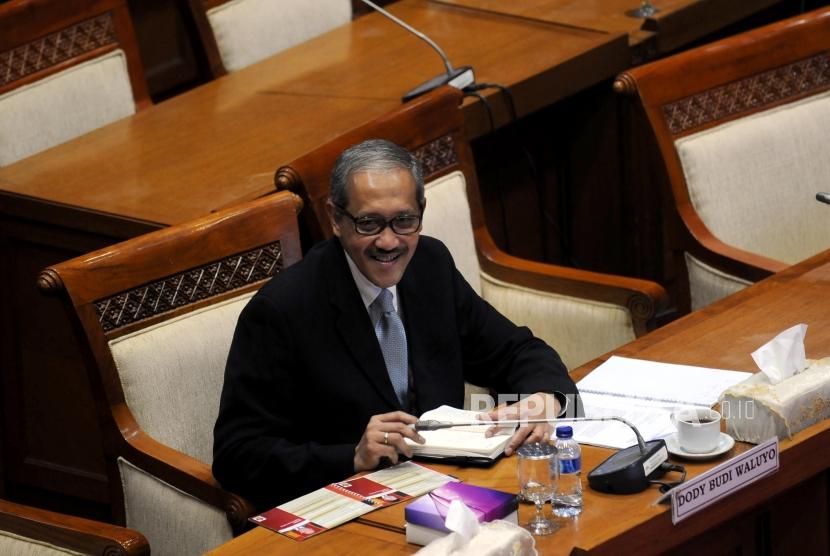REPUBLIKA.CO.ID, JAKARTA -- Bank Indonesia predicted that the U.S. dollar would continue to appreciate until the end of this year heaping more pressure on other currencies, including rupiah. However, Deputy Governor of the Central Bank Dody Budi Waluyo said the country central bank would seek to keep rupiah from weakening to a level far beyond its fundamental value.
Dody said the pressure on rupiah in the past several days was caused by improved economic data of the United States, sharper trade war between the world's two largest economies - the United States and China, issue of geopolitical stability and market expectation of U.S. Central Bank raising its fund rate 3-4 times this year.
"Bank Indonesia has calculated the possibility of the U.S. dollar appreciation until the end of 2018," he said here on Friday.
Since the reopening of trade on Wednesday and Thursday after long Eid al-Fitr holidays, rupiah has lost more value against the dollar.
However, in inter-bank transactions on Friday morning, rupiah rose slightly to the level of 14,100 from earlier level of 14,102 per dollar.
Based on the benchmark of Jakarta Inter-bank Spot Dollar Rate (Jisdor) released by Bank Indonesia on Thursday , rupiah weakened to the level of 14,090 per dollar from 13,902 per dollar the day before the long holidays.
Dody said the Central Bank would seek to maintain the confidence of investors in rupiah.
"Even if rupiah would weaken it would be a natural depreciation not overshooting far beyond its fundamental value," he said.
The Central Bank has four strategies as a follow-up measures to the present unfavorable condition, first - focusing on short term policy to strengthen economic stability, especially rupiah stability; and second - pre-emptive policy and to keep ahead of the curve to forestall new expected pressure, he said.
"The follow-up measures could be in the forms of an increase in interest rate and relaxation of policy in loan to bolster the housing sector (Loan to Value)," he said.
The third measure is double intervention in the government securities (SBM) and foreign exchange market, to keep liquidity relaxed and the fourth to apply intensive communications and strengthening coordination with the government and the Financial Service Authority (OJK).
Earlier, Bank Indonesia Governor Perry Warjiyo said the central bank was considering raising its benchmark interest rate by the end of this month in its response to rise in interest rate by the U.S. Federal Reserveand the European Central Bank (ECB).
Meanwhile, market analyst of Binaartha Sekuritas Reza Priyambada said here on Friday the plan of Bank Indonesia to raise its benchmark interest rate did not help much to strengthen rupiah. The market players were still in a panic by the trade friction between the United States and China, he said.
Meanwhile, the plan of the European Central Bank to improve the monetary climate in that region succeeded in strengthening the euro.


